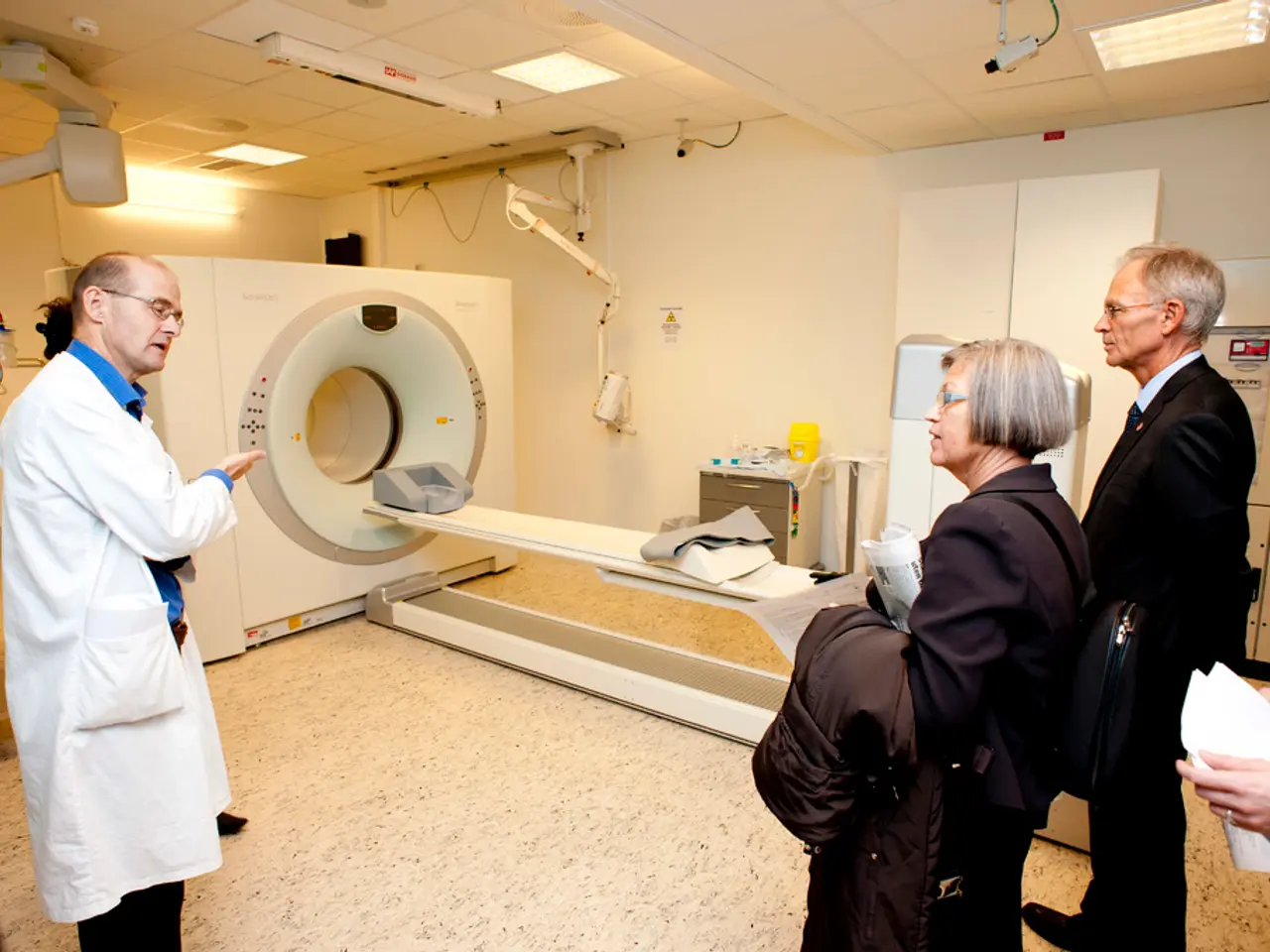Instructions for Aspiring Ultrasound Technicians: Becoming a Proficient Sonographer
In the dynamic world of healthcare, ultrasound technicians play a crucial role, working closely with doctors to aid in patient care and treatment plans. These professionals specialize in creating images of internal body structures to help diagnose medical conditions, with various specialties available such as obstetric and gynecological, abdominal, cardiac, and vascular sonography.
For those considering this rewarding career, the journey begins with a two-year associate's degree program, accredited by CAAHEP or JRC-DMS. Continuing education programs, workshops, and seminars can help technicians maintain their certification and stay current in their profession.
To better understand job prospects and salary expectations for ultrasound technicians across specialties and locations, several resources can be utilised. Websites like Indeed provide data on average salaries, which can range widely depending on specialty, experience, and location. For instance, the average salary is approximately $58,382 per year, but some technicians earn upwards of $100,725 annually. Indeed also offers geographic-specific data, such as salary and job outlook for ultrasound technicians in states like California.
Different specialties can influence salary and job availability. Emerging specialties, like traveling sonographer positions or roles in telemedicine, offer flexible job options and potentially higher pay due to short-term contracts or specialized skills. Traveling sonographers often earn more per contract and have benefits like travel and housing coverage.
Industry websites and professional sonography organizations often publish detailed career guides and salary reports, showing how education, certifications, and experience impact earning potential. Staying updated on technological advancements and trends in medical imaging can also help identify growing specialties with strong job prospects.
It's important to note that salaries and job prospects vary by region due to demand, cost of living, and healthcare infrastructure. Major metropolitan areas and regions with large healthcare facilities or aging populations tend to have higher demand and higher salaries for ultrasound technicians.
Job boards like Indeed can show current openings by specialty and location, allowing you to assess real-time market demand. Ultrasound staffing agencies can offer insights into contract opportunities, pay rates, and benefits for traveling or temporary ultrasound technicians.
Upon completing education and clinical training, becoming a certified ultrasound technician is recommended, with certification options from organisations like ARDMS or ARRT. Prerequisites for ultrasound technician programs may include a strong background in math and science, and some programs may ask for specific coursework or a background in healthcare.
The guide to becoming an ultrasound technician includes earning the necessary education, gaining clinical experience, obtaining certification, and staying up-to-date with the latest advancements to pave the way for a successful career. The profession of ultrasound technician offers a fulfilling career in the healthcare industry, providing an opportunity for those with a passion for helping patients and an interest in diagnostic imaging.
Further reading on ultrasound technology can be found in the article "When Do You Get Your First Ultrasound: Timelines and FAQs".
In the realm of health and wellness, ultrasound technicians' roles extend to fitness and exercise as well, due to the relevance of this technology in maintaining heart health through regular exercise and monitoring for potential medical conditions. As they specialize in various medical imaging areas like cardiac sonography, they contribute significantly to figuring out and managing heart-related issues in individuals.
On the topic of continuing education, staying current in the ultrasound technician profession involves attending workshops and seminars to broaden knowledge on the latest advancements in medical-conditions-related imaging techniques, which ultimately benefits patient care and health-and-wellness outcomes.




